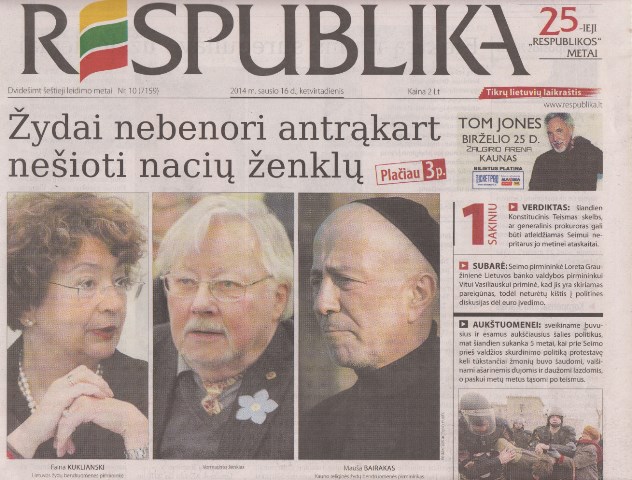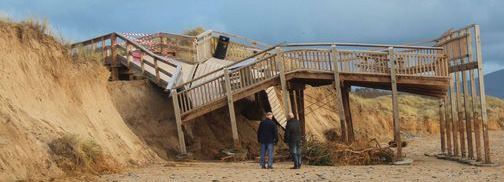The following translation, by Geoff Vasil, is of a front page article in the Vilnius daily Respublika (16 January 2014). The Lithuanian original is available online. See also: Geoff Vasil’s comment on the article which may serve as an introduction to some of the local issues and nuances.

Jews Don’t Want to Wear Nazi Symbols a Second Time
January 16, 2014 by Asta MARTIŠIŪTĖ and Olava STRIKULIENĖ, Respublika reporters MEP Vytautas Landsbergis, chairman of the Supreme Soviet/Restored Parliament of Lithuania, speaking at a solemn event to commemorate January 13 [1991], spoke in his speech about the Holocaust as well. Was it necessary to mention this at a ceremony dedicated to the 14 defenders of Lithuanian freedom who died and who hadn’t even been alive during Holocaust times? Beyond this, January 13 [commemorations] didn’t come off without yet another curiosity. A Wehrmacht symbol was used in the “Forget-me-not” campaign and MP Rasa Juknevičienė said next January it will be possible to acquire these symbols [lapel pins] throughout Lithuania, and not exclusively in the capital. Continue reading


